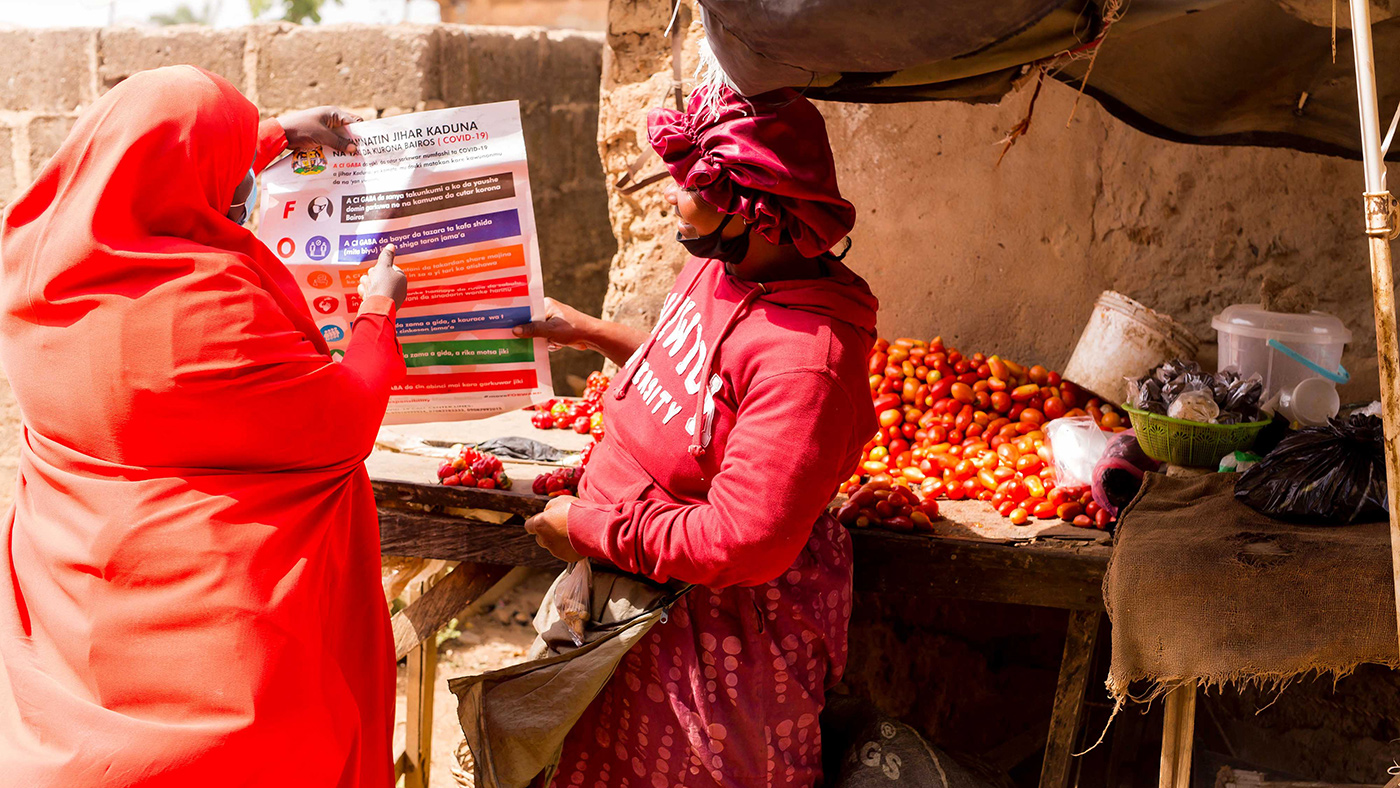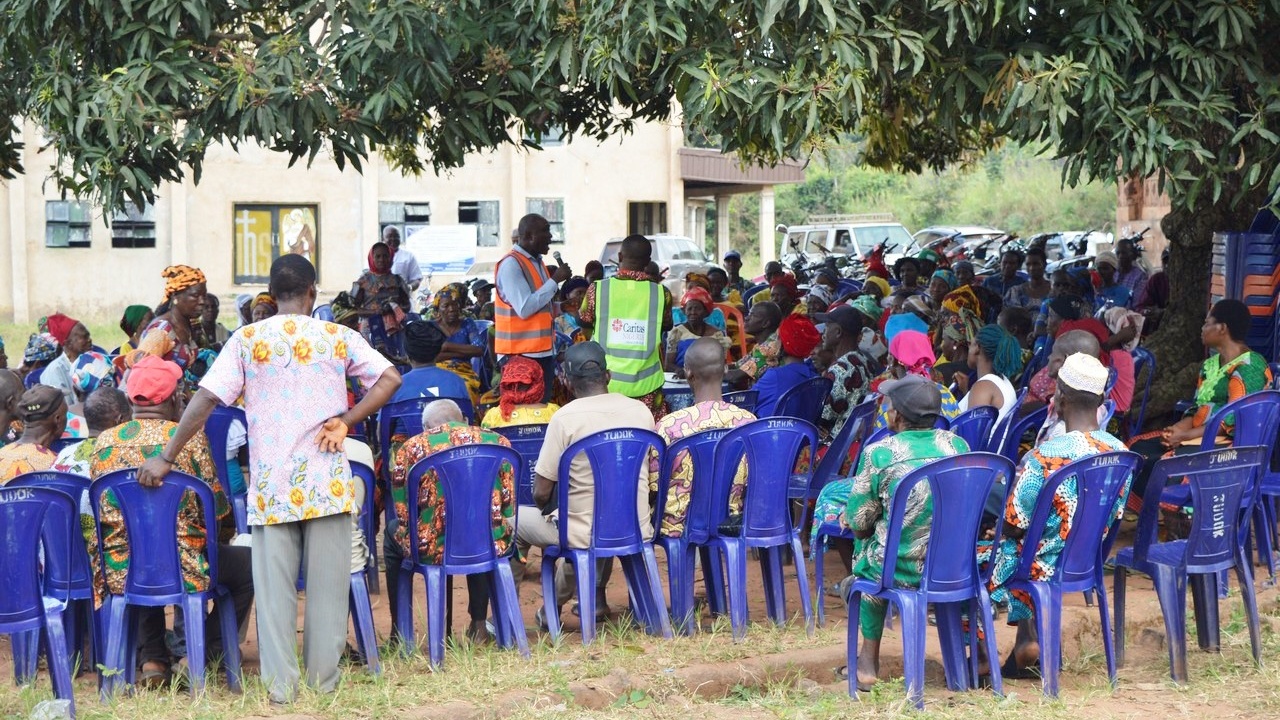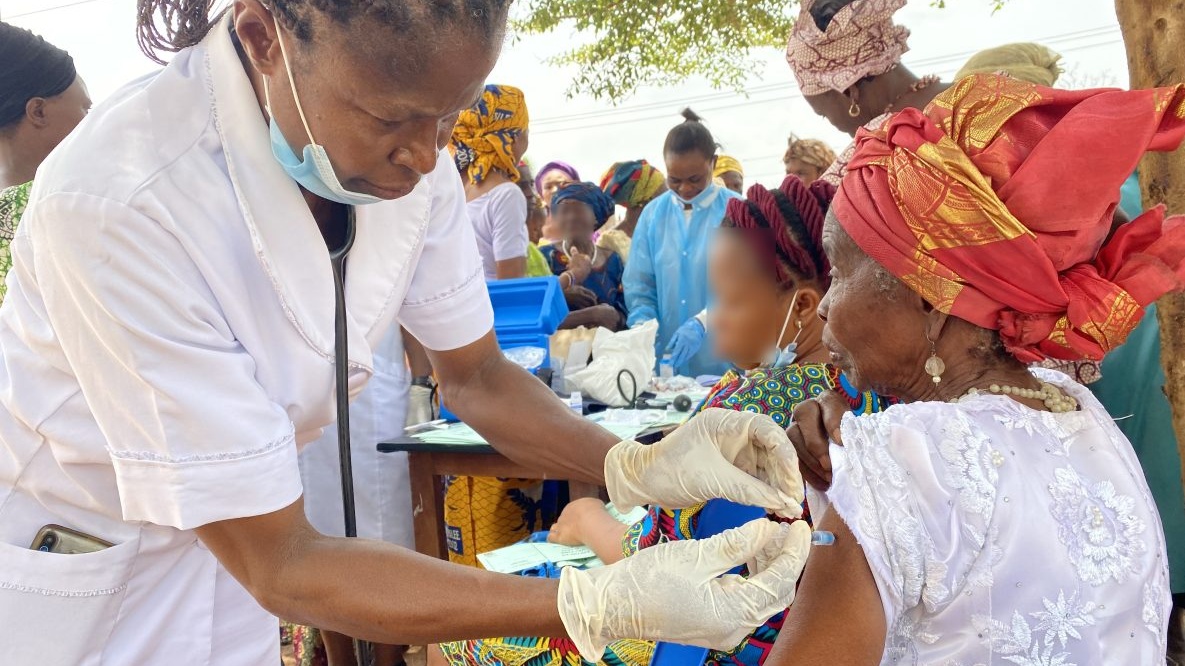Supporting a national response
Throughout the COVID-19 pandemic, experts from U.S. CDC in Nigeria worked in close partnership with the Government of Nigeria’s health agencies to prevent the spread of the disease. “We supported Nigeria’s vision and plan and helped them execute that jointly,” says U.S. CDC Nigeria Country Director Mary Boyd. This collaboration, built on more than 20 years of U.S. CDC’s work in Africa’s most populated country, contributed to Nigeria achieving several major accomplishments.
U.S. CDC Nigeria includes staff from three divisions that implement programs in global HIV and tuberculosis, global immunization, and global health protection. During the COVID-19 response, U.S. CDC Nigeria used expertise, resources, and strategic partnerships to support the following areas:
- outbreak response
- case management
- surveillance, epidemiology
- risk communication
- community engagement
- vaccination

Using existing expertise and infrastructure
Early in the response, U.S. CDC Nigeria helped expand COVID-19 testing capacity in the country. The Nigerian government increased the number of facilities capable of testing for COVID-19 from three to over 150 in two years. This was achieved by using laboratories supported through the U.S. President’s Emergency Plan for AIDS Relief program. The government also expanded the country’s ability to understand the genetic makeup of the virus that causes COVID-19.
U.S. CDC Nigeria worked with Nigeria’s Federal Ministry of Health and partners to:
- define case management and patient care standards
- develop a supervision checklist for treatment centers
- train case managers and local health officials
- review quality of care and treatment practices to improve outcomes
CDC Nigeria collaborated to deliver the Public Health Emergency Management (PHEM) Certification Program to train emergency response managers in the country.

Increasing COVID-19 vaccinations
The National Primary Healthcare Development Agency is Nigeria’s government agency responsible for vaccination programs. In early 2021, the agency announced its plan to vaccinate 70 percent of the eligible population against COVID-19. To help reach this goal, U.S. CDC Nigeria worked with the government and partners. Together, they developed, deployed, and evaluated Nigeria’s National Deployment and Vaccination Plan for COVID-19 Vaccines, addressed misinformation, and supported field efforts.
U.S. CDC Nigeria’s global immunization team and partners provided critical technical assistance to states and CDC Nigeria’s HIV/TB implementing partners. Polio program partners shared insights from decades of experience working in security-compromised and hard-to-reach areas. The work helped ensure all eligible populations had access to COVID-19 vaccines.
Four months after the office began supporting COVID-19 vaccination campaigns, 90 percent of the population in six CDC-supported states were vaccinated. The Government of Nigeria recognized the U.S. CDC Nigeria team for this accomplishment.
Overall, 72 million people in Nigeria who were up-to-date with their COVID-19 vaccinations at the end of April 2023. Eleven percent of them live in CDC-supported parts of the country.
The strong collaborations also made it possible for CDC-supported health facilities to integrate vaccine delivery and establish comprehensive points of care. The points of care provided HIV and tuberculosis care and treatment, COVID-19 testing, treatment, and vaccination, and other vaccination services.
Through these efforts, over 406,000 people living with HIV received at least one dose of a COVID-19 vaccine by December 2022. With additional support from the global health protection team, the health facilities were able to improve infection prevention and control practices.

Collaborating beyond COVID-19
Nigeria’s national COVID-19 response continues to benefit from U.S. CDC Nigeria’s unified approach. The collaborative efforts to strengthen and expand networks have been used to respond to other outbreaks. The efforts also build additional public health preparedness and response capacity, strengthen health systems, and improve routine and supplemental vaccine activities.
U.S. CDC Nigeria continues to provide PHEM to further prepare the country to prevent, detect, and respond to future pandemics or emergencies.
Going forward, U.S. CDC Nigeria teams will continue to collaborate to reach the office’s goal of providing public health excellence for healthy Nigerians.






